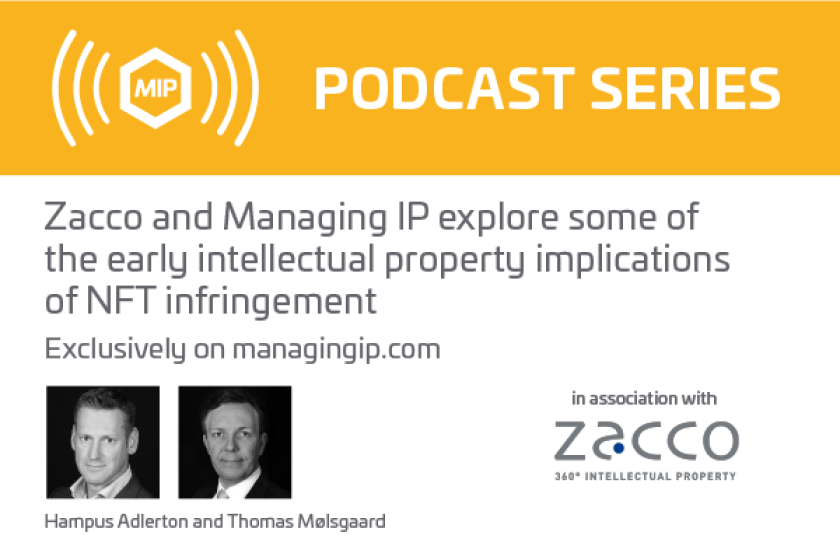Sales of NFTs have seen an incredible growth over the past couple of years – from $95 million in 2020 to almost $25 billion the following year.
But, despite this huge growth, it’s still very much a ‘wild west’ at the moment.
In this podcast Managing IP is joined by resident experts from IP firm Zacco who delve into some of the biggest intellectual property issues that we know about, and also consider those we don’t.
Which companies might best benefit from NFTs? What enforcement options are available? How do NFTs tie in with the metaverse? Is legislation keeping up to speed with these unprecedented changes?
To learn all this and more about how NFTs are reshaping the IP landscape, check out our 20-minute podcast by clicking on the link above.

Thomas Mølsgaard
Thomas has more than 20 years of experience advising both domestic and international organisations on the legal and commercial implications of their intellectual property rights, helping them through the IP lifecycle from identification to enforcement, online, offline or through the courts.
An experienced litigator, his detailed knowledge of IP, Business and Commercial Law, combined with his skills in anti-counterfeiting and online brand infringement have helped countless clients to maintain, secure and protect the value of their brand identity and IP rights.

Hampus Adlerton
Hampus is an expert in the legal, strategic and business aspects of intellectual property, marketing and branding strategy. He counsels clients through the development of their innovation and product/brand development processes, assisting with identification, clearance and enforcement of their ideas and branding IP.
Working with a mix of start-ups, multinational corporations and everything in between, his clients often commend him on his commercial awareness and ability to engage with all stakeholders, from employees to customers and partners, in identifying and developing the value of their rights.











